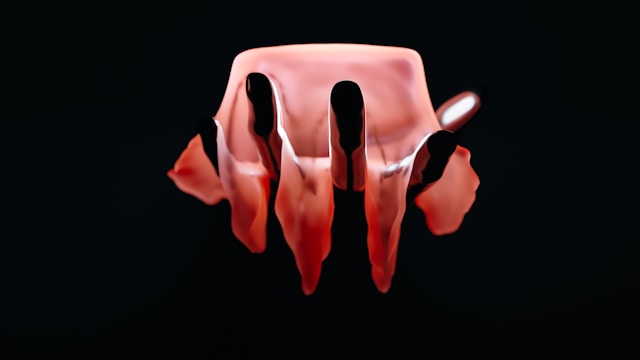Partial dentures are a practical solution for individuals missing one or more teeth. Among the various types available, flexible and unilateral partial dentures have gained popularity due to their comfort and convenience. This guide aims to provide a clear understanding of these two options, helping you make an informed decision about your dental health.
What Are Partial Dentures?
Partial dentures are removable dental appliances designed to replace missing teeth. They help restore functionality and aesthetics, allowing individuals to chew, speak, and smile confidently. Unlike full dentures, which replace all teeth in an arch, partial dentures fill in the gaps left by missing teeth while preserving the remaining natural teeth. They are custom-made to fit comfortably and securely, ensuring that they blend seamlessly with your existing teeth.
Understanding Flexible Partial Dentures
Flexible partial dentures are made from a soft, thermoplastic material that adapts to the contours of your mouth. This flexibility provides a comfortable fit and eliminates the need for metal clasps, making them more aesthetically pleasing. They are particularly suitable for individuals with irregularities in their dental arch or those seeking a more natural-looking solution. These dentures are also a great option for patients who are allergic to certain metals or who have experienced discomfort with traditional rigid dentures.
Benefits of Flexible Partial Dentures:
- Comfort: The flexible material reduces irritation and adapts to the natural movements of the mouth.
- Aesthetics: Without metal clasps, they offer a more natural appearance.
- Durability: The thermoplastic material is resistant to breakage, enhancing longevity.
- Biocompatibility: They are less likely to cause allergic reactions or gum irritation.
Considerations:
- Maintenance: Proper cleaning is essential to prevent staining and maintain hygiene.
- Support: They may not provide the same level of support as metal-based dentures for extensive tooth loss.
- Adjustability: Repairs or adjustments can be more challenging due to the flexible material.
Exploring Unilateral Partial Dentures
Unilateral partial dentures are designed to replace teeth on one side of the mouth. They are ideal for individuals missing one or a few teeth in a specific area. These dentures are lightweight and less intrusive, offering a discreet solution for partial tooth loss. Because of their small size and targeted design, unilateral partial dentures can be easier to wear and manage than traditional full or bilateral partials.
Benefits of Unilateral Partial Dentures:
- Simplicity: Designed for specific areas, they are easy to insert and remove.
- Comfort: Their minimal design reduces bulkiness, enhancing comfort.
- Cost-Effective: Typically less expensive due to their smaller size and simpler construction.
- Functionality: Offers improved chewing and speech in the affected area without overwhelming the mouth.
Considerations:
- Stability: May not be as stable as full partial dentures, especially if multiple teeth are missing.
- Retention: Proper fit is crucial to prevent movement during use.
- Limited Application: Best suited for cases with minimal tooth loss on one side only.
Comparing Flexible and Unilateral Partial Dentures
When deciding between flexible and unilateral partial dentures, consider the following factors:
- Extent of Tooth Loss: Flexible partial dentures are suitable for multiple missing teeth across the arch, while unilateral dentures are best for one-sided tooth loss.
- Comfort and Fit: Flexible dentures offer adaptability and softness, whereas unilateral dentures provide a lightweight, less invasive option.
- Aesthetics: Both options offer discreet solutions, but flexible dentures are preferred for their gum-colored material and clasp-free design.
- Cost: Unilateral dentures are generally more affordable due to their limited scope and simpler build.
- Durability and Maintenance: Flexible dentures are resilient and long-lasting, but harder to adjust. Unilateral dentures may be easier to manage but are more specific in use.
Choosing the Right Option for You
Selecting the appropriate partial denture depends on your specific dental needs, preferences, and budget. A consultation with your dentist is essential to assess your oral condition and determine the best option. Your dentist will evaluate the location and number of missing teeth, the health of your remaining teeth, and your bite alignment to recommend the most suitable denture type.
It’s also helpful to consider your lifestyle. If you value a natural look and wear your denture for most of the day, a flexible partial denture may be ideal. If your needs are limited to one section of your mouth and you want a simple, cost-effective solution, a unilateral partial denture might be the better choice.
Caring for Your Dentures
Both flexible and unilateral partial dentures require proper care to maintain their functionality and hygiene. Rinse your dentures after meals to remove food particles. Brush them daily with a soft-bristled brush and a non-abrasive cleaner. Avoid using hot water, which can warp the material. Always store your dentures in a container with clean water or denture solution when not in use.
Regular dental visits are important for checkups and to make any necessary adjustments to your dentures. Taking good care of your dentures can extend their lifespan and ensure that your oral health remains in top shape.
Conclusion
Both flexible and unilateral partial dentures offer effective solutions for replacing missing teeth, each with its unique advantages. Flexible partial dentures are ideal for those seeking comfort and aesthetics across multiple missing teeth, while a unilateral partial denture serves as a simple, one-sided option for localized tooth loss. Understanding their differences and benefits can help you make an informed decision to restore your smile and confidence. Always seek professional advice to ensure the best outcome for your dental health.
To explore options or consult with a dental provider, visit the trusted source Revived Smiles.
Email your news TIPS to Editor@Kahawatungu.com — this is our only official communication channel


